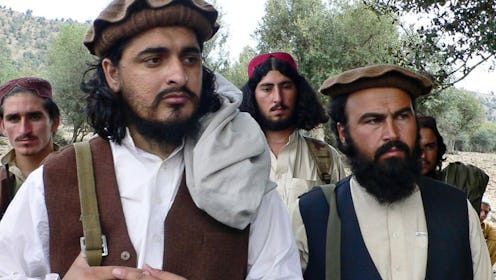News
Drone Strike Kills Taliban Leader: Reports

A U.S drone strike in Northwestern Pakistan killed Pakistani Taliban leader Hakimullah Mehsud and at least two others on Friday, derailing proposed peace talks between the militant group and the new Pakistani government. Hakimullah’s death was confirmed by Pakistani intelligence and members of the Pakistani Taliban, though U.S. officials have yet to confirm or deny it.
While details surrounding the strike are still somewhat sketchy, sources told Reuters that Hakimullah was attending a meeting of 25 Taliban leaders to discuss upcoming talks with the Pakistani government, which could put the death toll as high as 25. Pakistani intelligence sources confirmed that Hakimullah’s driver and bodyguard were also killed in the strike, and the Pakistani Taliban confirmed Hakimullah’s death.
"We confirm with great sorrow that our esteemed leader was martyred in a drone attack," said a senior Taliban commander.
Hakimullah steadily rose through the ranks of the Pakistani Taliban and was at one point the driver for Baitullah Mehsud, the previous head of the group. When Baitullah was killed in 2009 by a drone strike, Hakimullah assumed leadership of the group. Believed to be around 33 years old, he had a $5 million bounty on his head and was accused of orchestrating the 2009 attack on a CIA compound in Afghanistan that killed seven Americans.
Pakistani Prime Minister Nawaz Sharif had announced earlier in the day that his government would launch peace talks with the Pakistani Taliban. The government reportedly called off that plan after the strike, and Interior Minister Chaudhry Nisar Ali Khan put out a statement accusing the U.S. of launching “a conspiracy to sabotage the peace talks.”
According to the Pakistani Taliban, two commanders — Maulvi Omar Khalid and Maulana Fazlullah — have been selected to replace Hakimullah, and a funeral is planned for Saturday.
There’s something of a circularity to all of this. Faisal Shahzad, the Pakistani man who attempted unsuccessfully to bomb Times Square in 2010, had reportedly been in communication with the Pakistani Taliban, and said after his arrest that U.S. drone strikes in Pakistan had motivated his plot.